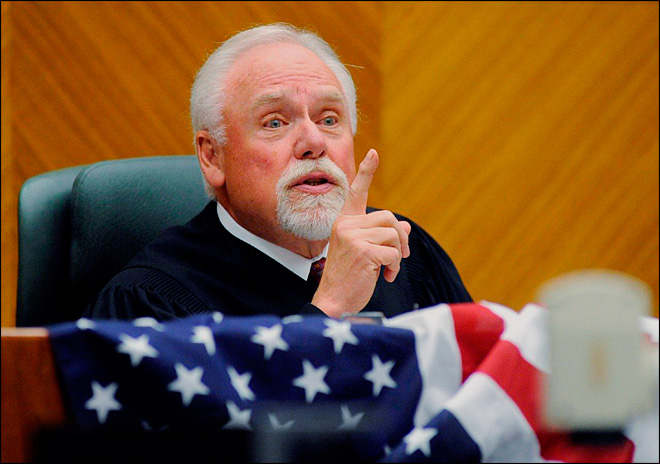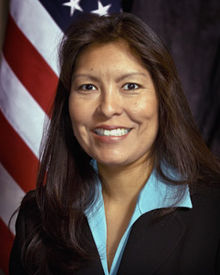
WikiCommons
by Cassandra Profita, OPB/EarthFix
The longstanding legal battle over maintaining dams and salmon in the Columbia River is back in court this week. On Tuesday, a new judge will hear arguments on the Obama administration’s latest salmon plan.
Conservation groups along with the state of Oregon and the Nez Perce Tribe have challenged the 2014 biological opinion, or BiOp, that guides dam operations. They’ll argue their case before Oregon U.S. District Court Judge Michael Simon, who took over the case when Judge James Redden retired.
The question behind the case: how to offset the impacts of Columbia River dams on threatened and endangered salmon and steelhead. That question has been subject to more than 20 years of legal conflict. Tuesday’s hearing is a continuation of a lawsuit that was filed in 2001.
Federal agencies that run the Columbia River hydropower system have submitted several salmon protection plans under the Clinton, Bush and Obama administrations, but they’ve all been challenged and ultimately rejected in court. The U.S. Army Corps of Engineers, National Oceanic and Atmospheric Administration, U.S. Bureau of Reclamation and Bonneville Power Administration will defend their 2014 plan on Tuesday.
Supporters of the plan say strong salmon returns in recent years prove the latest plan is working. But opponents say it doesn’t do much more to protect salmon than previous plans already struck down by the courts.
Before retiring, Redden rejected the Obama administration’s 2011 salmon plan. After announcing he would step down from presiding over the case, he said in an interview that the four dams on the lower Snake River should be removed as a way to help struggling salmon runs. He also supported spilling more water over dams and increasing water flows to help young salmon and steelhead migrate to the ocean.
Joseph Bogaard, executive director of the plaintiff group Save Our Wild Salmon, said the administration’s new plan doesn’t consider Redden’s recommendations, and it actually allows the government to reduce the amount of water spilled over dams to help fish.
“So, they’re moving in the wrong direction,” he said. “In many ways this plan is simply just a recycled version of the plan that was invalidated by the court in 2011. Though, this plan actually allows for a reduction in spill. So, in that regard the new pan is actually weaker than the plan it seeks to replace.”
Terry Flores of Northwest RiverPartners represents commerce and industry groups that defend dams on the Columbia and lower Snake rivers. She said the current salmon plan does a lot to help salmon, including investing around $100 million a year in habitat restoration. High rates of salmon survival show that the plan is working, she said, including the amount of water being spilled over dams to help fish.
“We’re seeing incredible results,” she said. “The federal agencies did look at the spill program and reached the conclusion that it’s working very well. It wasn’t like they didn’t look at it. They looked at it and said it is absolutely working.”
Flores said only Congress can address the removal of the lower Snake River dams.






